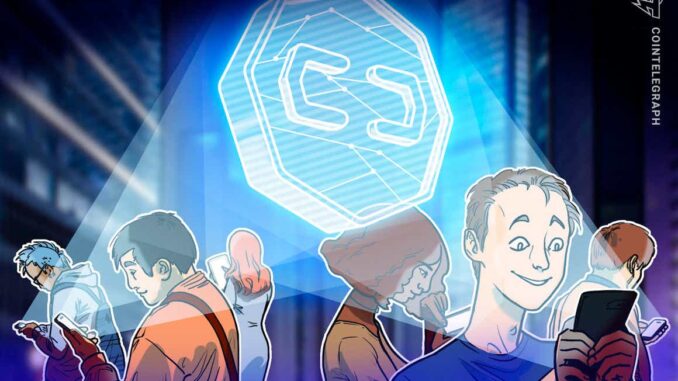
[ad_1]

Indian social networking platform Chingari has announced ambitions to revolutionize the experience of its 100 million-user creator economy through the integration of native digital asset, $GARI, and accompanying cryptocurrency wallet via the Solana blockchain.
Translating into the word ‘Spark’ in the languages of Urdu and Hindi — a branding visibly consistent with its flame icon — the Chingari user interface often draws parallels to popular Western entertainment services TikTok, Instagram Reels and YouTube Shorts, for its principal focus on short-timed, infinitely accessible video content.
Launched in 2018, the platform has grown exponentially over the past few years, amassing over 35 million monthly active users to become the most popular mobile application in the country on the Google Play store. As in the case of TikTok, creators are revered for their entertainment across an array of topics such as lip-synching, belly dancing, comedic sketches and fashion tips, among others.
Since April 2021, Chingari has obtained capital from numerous raises, including a $13 million corporate round on Apr 1, a $19 million Series A led by Galaxy Digital and Republic Crypto on Oct 8, and a $40 million initial coin offering on Nov.4, concluded by a $13.37 million Series A continuation on Jan 17 this year.
Cointelegraph reached out to a spokesperson from Chingari for an exclusive insight into the platform’s expectations for the ways in which the $GARI token will enhance the existing experience for both creators and fans alike.
The team member noted that GARI, a Solana Program Library (SPL) asset, will be utilized to “connect and transact with their counterparties, place governance votes, and catalyze platform engagement and user base growth”, before outlining:
“The goal is to empower both creators and viewers on the Chingari App with technological tools to interact directly with each other and allow all users on the Chingari App to participate in the long-term direction of the social economy impacting the GARI Token.”
In addition, they revealed future plans to launch an NFT marketplace in which “creators will be able to mint their videos, sell it as NFT and earn GARI.”
Following nation-wide concerns over the regulatory intentions of the Securities and Exchange Board of India (SEBI) towards digital assets, a proposed infrastructure bill seen by local news outlet NDTV suggests that the government are preparing to impose a regulatory framework for digital assets, not an outright ban.
Alongside this, the Indian government has adopted a firm stance to denounce the acceptance of cryptocurrencies such as Bitcoin and Ethereum as instruments of legal tender, but rather to pursue the viability of a government-backed central-bank digital currency (CBDC), digital rupee.
Related: Crypto tax doesn’t legalize trading, says Indian tax department chief
Later in our conversation, Chingari reps revealed the mechanisms in which the $GARI asset will serve as a governance token in fostering genuine decentralization on the platform, stating:
“We are built on Web3, and Web3 DAO runs on decisions of the community. $Gari holders will be able to stake and earn yield as well as vote on proposals to decide the future direction of the platform.”
The GARI token price has fluctuated in a range-bound zone between $0.252 and $0.685 over the past two weeks. Following last week’s attainment of trading status on a number of prominent exchanges, including FTX, Kucoin and Huobi, among others, the asset now seeks to establish a level of stability around the $0.51 mark at the time of writing.
Upon inquisitive dialogue into the potential for a token airdrop for groups such as early adopters, top creators, or perhaps the 500 community members who participated in beta testing, the Chingari team disclosed to Cointelegraph:
“We will be airdropping 100 GARI tokens [to] every Chingari app user who completed certain tasks in the airdrop campaign… provided that the users have completed KYC. This is one of the biggest airdrop campaign which was organised with approx 5 Mn tokens reserved for the community.”
[ad_2]
Source link



 Bitcoin
Bitcoin  Ethereum
Ethereum  Tether
Tether  XRP
XRP  Solana
Solana  USDC
USDC  TRON
TRON  Dogecoin
Dogecoin  Lido Staked Ether
Lido Staked Ether
Be the first to comment